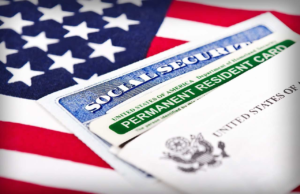Electronic Diversity Visa Entry Form
Guide to the Electronic Diversity Visa Entry Form: How to Enter the U.S. Diversity Visa Lottery
The Diversity Visa (DV) Lottery, commonly known as the Green Card Lottery, is a program established by the U.S. government to diversify immigration. Each year, 50,000 visas are granted through a lottery system to individuals from countries with low immigration rates to the U.S. The program, administered by the U.S. Department of State, requires applicants to complete the Electronic Diversity Visa (EDV) Entry Form online to participate. Here’s a comprehensive guide to the DV Lottery entry process, eligibility criteria, and tips for submitting a successful application.
Overview of the Diversity Visa (DV) Lottery Program
The Diversity Visa Lottery is an annual program that enables applicants from eligible countries to apply for permanent residency (a green card) in the United States. Its goal is to promote diversity by providing opportunities for people from regions that historically have low rates of U.S. immigration. Selected applicants can then apply for a green card, which provides the right to live and work in the U.S. permanently.
Eligibility Criteria
To be eligible for the DV Lottery, applicants must meet two primary requirements:
- Country of Origin
Applicants must be from a country with historically low rates of U.S. immigration. The list of eligible countries is updated annually, and citizens of countries with higher immigration rates to the U.S., such as China, India, and Mexico, are not eligible to apply. Applicants whose countries are not eligible can still apply if:- Their spouse is from an eligible country and they list their spouse on the application.
- They were born in a country that is eligible, even if they now reside in an ineligible country.
- Education or Work Experience
All applicants must have either:- A high school diploma or its equivalent, which is defined as successful completion of a 12-year course of elementary and secondary education, or
- Two years of work experience within the past five years in an occupation that requires at least two years of training or experience.
Completing the Electronic Diversity Visa Entry Form
The DV Lottery application must be submitted electronically via the Department of State’s website. Here are the steps to follow:
- Accessing the Form
Go to the U.S. Department of State’s Diversity Visa Program website. The form is available only during the application window, typically open for about a month each year in October or November. It’s free to apply, and applicants should beware of fraudulent websites or services that charge fees for submitting an application. - Filling Out the Form
The EDV Entry Form (Form DS-5501) requires personal and biographical information. Here’s a breakdown of the main sections:- Personal Information: Include your full name, gender, birth date, city and country of birth, and country of eligibility.
- Passport Information: Since 2019, a valid, unexpired passport is required to apply, except in cases where applicants are stateless or unable to obtain a passport due to national restrictions.
- Education and Work Experience: Select the highest level of education you’ve completed and indicate your work experience.
- Contact Information: Provide a mailing address, phone number (optional), and email address, which is critical for notification purposes.
- Family Information: List your spouse and any unmarried children under the age of 21. This is required even if they do not intend to immigrate to the U.S. with you.
- Photograph: Upload a recent, high-quality photo that meets the specific requirements listed on the DV website. The photo must be clear, with a white or neutral background, and no head coverings (except for religious reasons). Submissions with incorrect photos will be disqualified.
- Reviewing and Submitting the Form
Double-check all information before submitting the form, as incorrect or incomplete entries can result in disqualification. Once submitted, you’ll receive a confirmation number, which is crucial for checking your entry status later.
Selection Process
The U.S. government selects DV Lottery winners through a random, computer-based lottery. The number of visas available is divided among six geographic regions, with no single country receiving more than 7% of the total visas in a given year.
Applicants can check their status online through the Department of State’s Entrant Status Check portal using their unique confirmation number, typically starting the May following the application period. If selected, applicants will receive instructions on how to proceed with the visa application process, including scheduling an interview and completing additional documentation.
Common Mistakes to Avoid
- Submitting Incomplete or Incorrect Information
Mistakes on the application, particularly with names or passport information, can result in disqualification. Take time to carefully review each section of the form. - Using an Invalid Photo
The photo requirements for the DV Lottery are strict. Photos that don’t meet specifications will lead to automatic disqualification. - Failing to Save the Confirmation Number
After submitting the application, make sure to save the confirmation number. This is the only way to check your status. Lost confirmation numbers cannot be retrieved. - Multiple Entries
Submitting more than one entry per individual is prohibited and will lead to disqualification.
Final Tips for a Successful Application
- Submit Early: The application window is limited, and waiting until the last minute may lead to technical issues or missed deadlines.
- Use the Official Site: Ensure you are submitting your application through the official U.S. Department of State website (dvprogram.state.gov).
- Keep Your Confirmation Safe: This number is essential for checking your status and following up on your application if selected.
Conclusion
The DV Lottery offers a unique path to U.S. residency for eligible applicants from underrepresented countries. While the process is competitive and strict, following the guidelines closely can improve your chances. Through careful preparation and accurate submission of the Electronic Diversity Visa Entry Form, applicants can take a step toward fulfilling their dreams of living and working in the United States.
